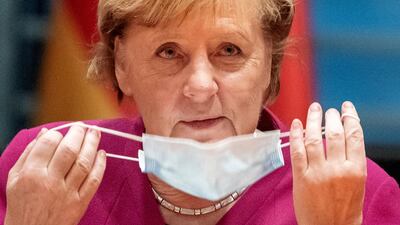The population of Germany fell for the first time in a decade after a sharp cut in immigration because of coronavirus.
The number of people in the country fell by 40,000 in the first six months of the year from a record 83.2 million last year, according to the Federal Statistical Office. The last decline was in the second half of 2010.
Preliminary figures showed net immigration of 74,000 in the first half of the year, compared with 167,000 a year earlier. Germany shut its borders during part of the period.
The statistics office said delayed registration of new arrivals and departures from office shutdowns may also play a part in the figures.
Europe’s largest economy has been trying to reverse the effects of a low birth rate and one of the world’s oldest populations for years, but that decline has been offset by large numbers of immigrants.
The change is a significant shift from 2015 when Germany accepted the bulk of more than a million people who arrived in the EU from the Middle East and Africa fleeing war and poverty. Since then, the number of arrivals from countries outside Europe has fallen.
The subsequent backlash against Chancellor Angela Merkel’s liberal immigration policies led to a surge in support for the far-right and the biggest challenge to her leadership since she took power in 2005.
But support for the far-right has fallen away during the Covid-19 pandemic with Germans supporting Mrs Merkel’s handling of the crisis.
She said on Wednesday that Germans need to contain a worsening second wave of the virus or tough new restrictions would be on the way.


